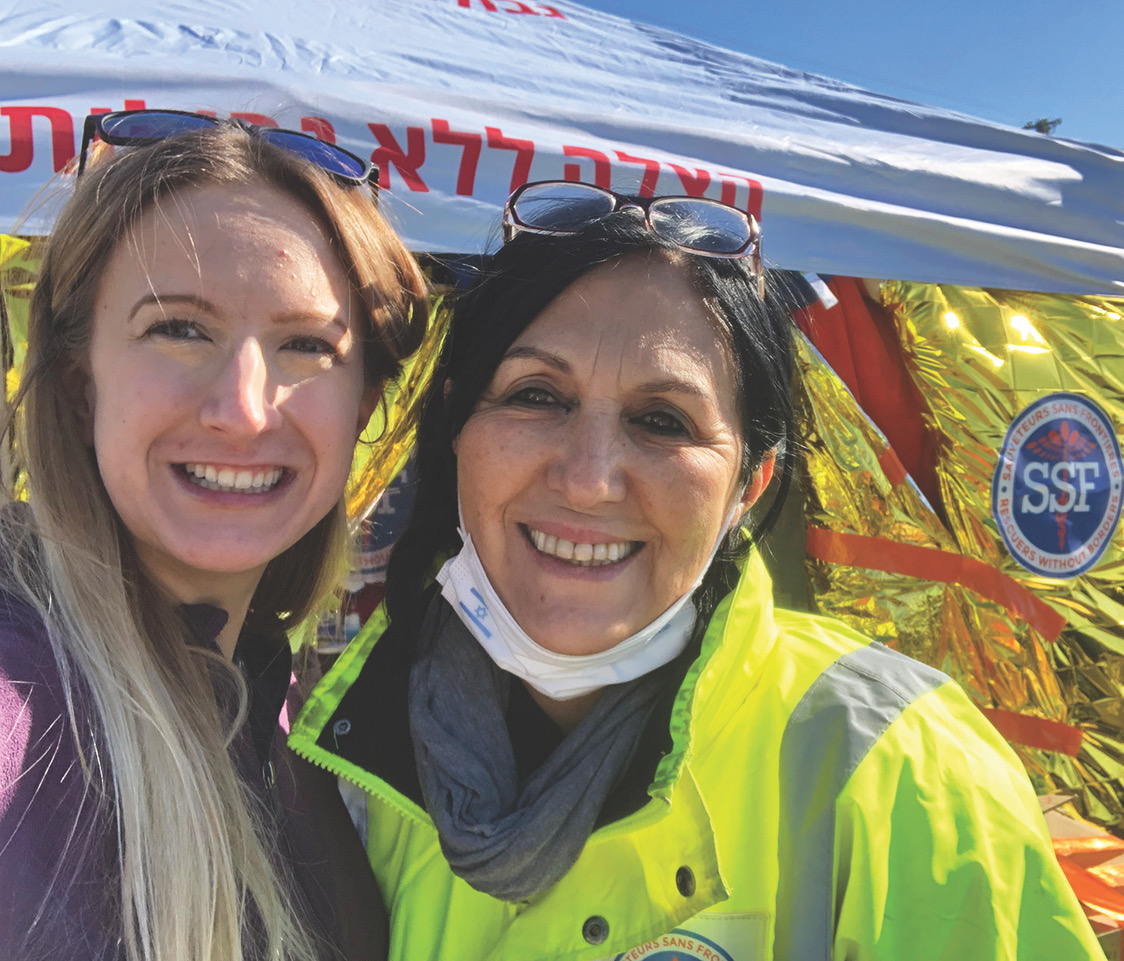
Here I Am, Lord. Send Me.
“Surely, if God could keep refugees’ clothes and shoes from wearing out in the desert (Deut. 29:5), He could also supply today’s needs.”
International media reports of people fleeing their homes even before Russia engaged in full-scale war galvanized Heidi I Baumbach, a farmer/musician from central Alberta, to action.
On Feb. 24, 2022, when the first bombs fell, she was already mid-flight to Warsaw to help refugees.
Heidi was familiar with Eastern European languages and had studied in Poland. She says, “Laws and regulations that would keep Canadian civilians from attempting any such thing at home are generally less stringent in Eastern Europe. I saw they needed help, so I went.’
On her own in Poland, a civilian with no western relief agency to back her, Heidi looked for a place to stay and a vehicle to rent. Miraculously, in the midst of the chaos, she found both. Then she drove the one-hour trip to the border to observe the needs.
One of Heidi’s first tasks was to drive to Ukrainian orphanages and bring children safely back. (Human trafficking was already a huge concern. She was told that one orphan could mean mortgage payments for a year!) One day, she expected five orphans waiting for her; instead, there were 14 women and children. She took them all to her apartment, a safe space to decompress and decide on next moves.
Then she turned her attention to money. Fortunately, Heidi’s work had caught the attention of a Canadian news crew. They shared her protegees’ stories, and funds started arriving. Heidi also posted on social media. She set up a GiveSendGo account. And she prayed. Surely, if God could keep refugees clothes and shoes from wearing out in the desert (Deut. 29:5), He could also supply today’s needs. And He did. People responded with open hearts and hands.
The Premysl refugee camp, a repurposed old shopping centre at the border, was overwhelmed. Supplies were being delivered, but they weren’t always what was needed. Heidi recalls, “I went into a bathroom crowded shoulder-to-shoulder like a nightclub. Outside, the line was over an hour long. Two unisex stalls for the entire refugee camp! And only one out of four sinks worked.” The bathroom became one of Heidi’s side projects. She checked it daily.
The needs were obvious, and Heidi helped fill the gaps. When she distributed toiletries, the response was overwhelming. When she saw the plight of seniors standing in 500-metre queues for bus rides to refugee camps, she bought wheelchairs, canes, and walkers. Her apartment became a refuge for women and children.
Although Heidi is now back in Canada, her mission isn’t complete. One of “her” refugee families chose to settle in central Alberta. Others have followed. As she continues to raise funds to assist them with transitioning, she writes, “I could have never ever anticipated our communities to be so incredibly open-hearted, and yet I don’t think their generosity surprises me for a second. We are surrounded in this country by such good people, and I am so excited for us to share this goodness with these new friends and neighbours.”
Burman Alumni – Impacting Their Communities



